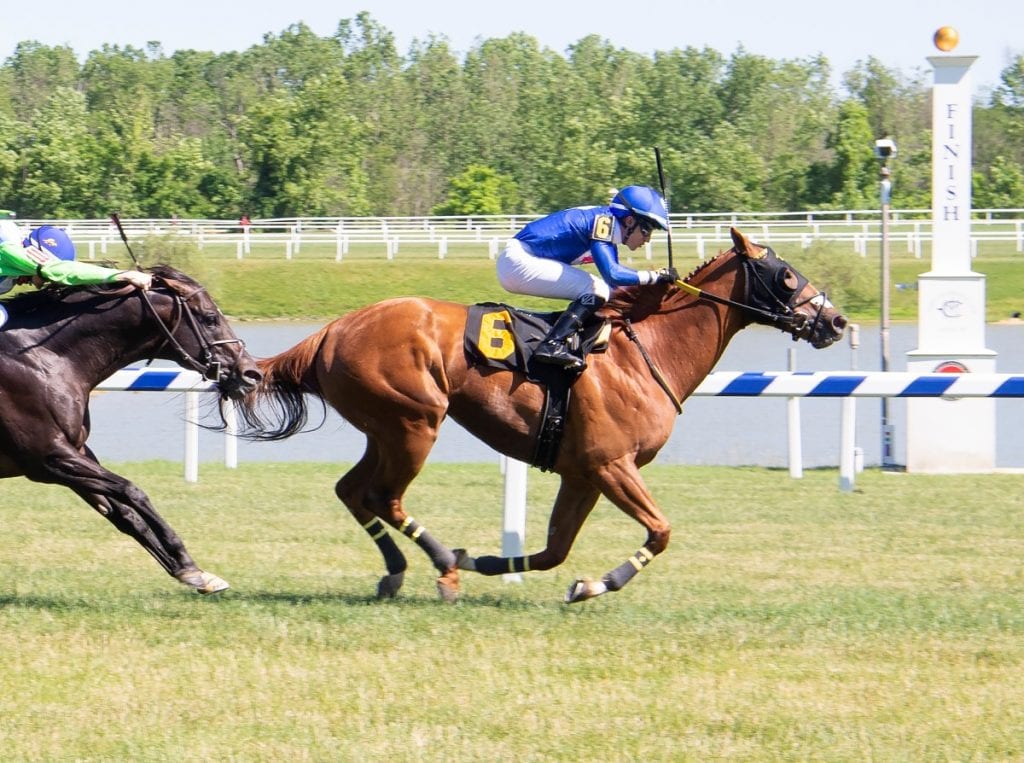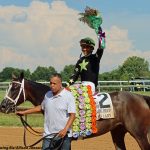OPINION: BREAKING FAITH WITH NJ HORSEMEN

The Asbury Park Press reports that more than 70 percent of the purse money earned by horsemen at Monmouth Park this meet has yet to be paid out – a result of delays in testing.
The New Jersey Racing Commission, which oversees drug testing, typically tests two horses from each race: the winner and one other, randomly chose runner.
But Truesdail Laboratories, which conducts the tests, is so backed up that it has completed testing on just one day of Monmouth’s meet to date: opening day, which was July 3. That means that the horses tested from that July 3 card are the only ones to date whose purses have been released. Horses not tested have had their purses released already, but since the winner takes 60 percent of the purse, that means the lion’s share of the earned money is languishing.
Sources contacted independently by The Racing Biz confirmed the story.
Of course, most horsemen understand the importance of drug testing and the value – to clean competition and to the business as a whole – of catching those who violate the rules. But an unexpected delay of this magnitude – verging on six weeks in some cases – crosses the line from “acceptable delay for the good of the game” to breaking faith with folks who are the sport’s backbone.
We get it: horse owners are not always the most sympathetic characters in the story. It’s the “sport of kings” for a reason; plenty of horses are owned by people who will barely notice a lengthy delay in payouts.
- Spa Selections 2025: Saratoga Picks July 10
 Picks and analysis for today’s key races from Saratoga.
Picks and analysis for today’s key races from Saratoga.
But plenty of other horses are owned by people who needed that money, like, yesterday. One horseman, who asked not to be identified, said he’d received apologies from people at Monmouth for the delay in payments.
“But apologies cannot pay my bills,” the person lamented.
The pressure is especially acute since Monmouth lost about 20 days of its racing calendar to its coronavirus-prompted delay in opening. The track kicked off its meet July 3, rather than its originally planned date of May 2. That’s additional millions of dollars horsemen won’t see.
Of course, a big part of the problem is systemic: the economics of horse racing make little sense to start with, which pushes many – particularly smaller owners and trainers – to the brink.
According to The Jockey Club, folks spent nearly $1.1 billion buying horses at sales in 2019. Total North American purses that year were less than $1.3 billion. When you figure in the other ways people acquire horses – via private sales, or through the claimbox, or by breeding them themselves – plus the “operating expenses” of owning a horse, it’s not hard to see that horsemen in general spend a whole heck of a lot of money chasing much less in purses. They’re losing, and losing big, even when things are going well.
You can reasonably assume that the gap between expenses and income is what horsemen perceive to be the value of the dream of owning a good one and of the experience itself. But like apologies, those things can’t pay bills.
- CT: It’s all about the finish for Xcellent Start
 Claimed earlier this year, the inaptly named, late-running Xcellent Start may be nearing a return to stakes company for trainer Wade Sanderson.
Claimed earlier this year, the inaptly named, late-running Xcellent Start may be nearing a return to stakes company for trainer Wade Sanderson.
Monmouth Park officials told the Press that they were in contact with the state Racing Commission and considering filing suit against the testing lab, which they allege is in violation of its contract, which they say calls for final results to be released within eight days of the test.
Justice delayed, it’s been said, is justice denied. How long will New Jersey horsemen have to wait for money they’ve earned to be available to them?
Truesdail owes the state some answers, and the state’s horsemen’s group needs to think creatively about how it can help tide its most vulnerable horsemen over while they’re waiting.
In the meantime, trainer Gregg Sacco told the Press that his backstretch peers “are going crazy about this… A lot of people back here rely on purse money to survive from week to week.”
One horseman we spoke with captured the bleak feelings on the backside.
“I just don’t know what to do anymore,” the horseman said.
LATEST NEWS














Ask former NJSEA head Dennis Robinson, a Harvard MBA like myself, about something called the time value of money.
Monmouth Park has earned in interest on the purse money they have held back from horsemen. The NJTHA members are not only entitled to the purse money that has been held back from them, but also to the interest on the held back purse money. A lawsuit might be filed. There are probably some poor grooms with less than $300 to get them through until the end of the month.